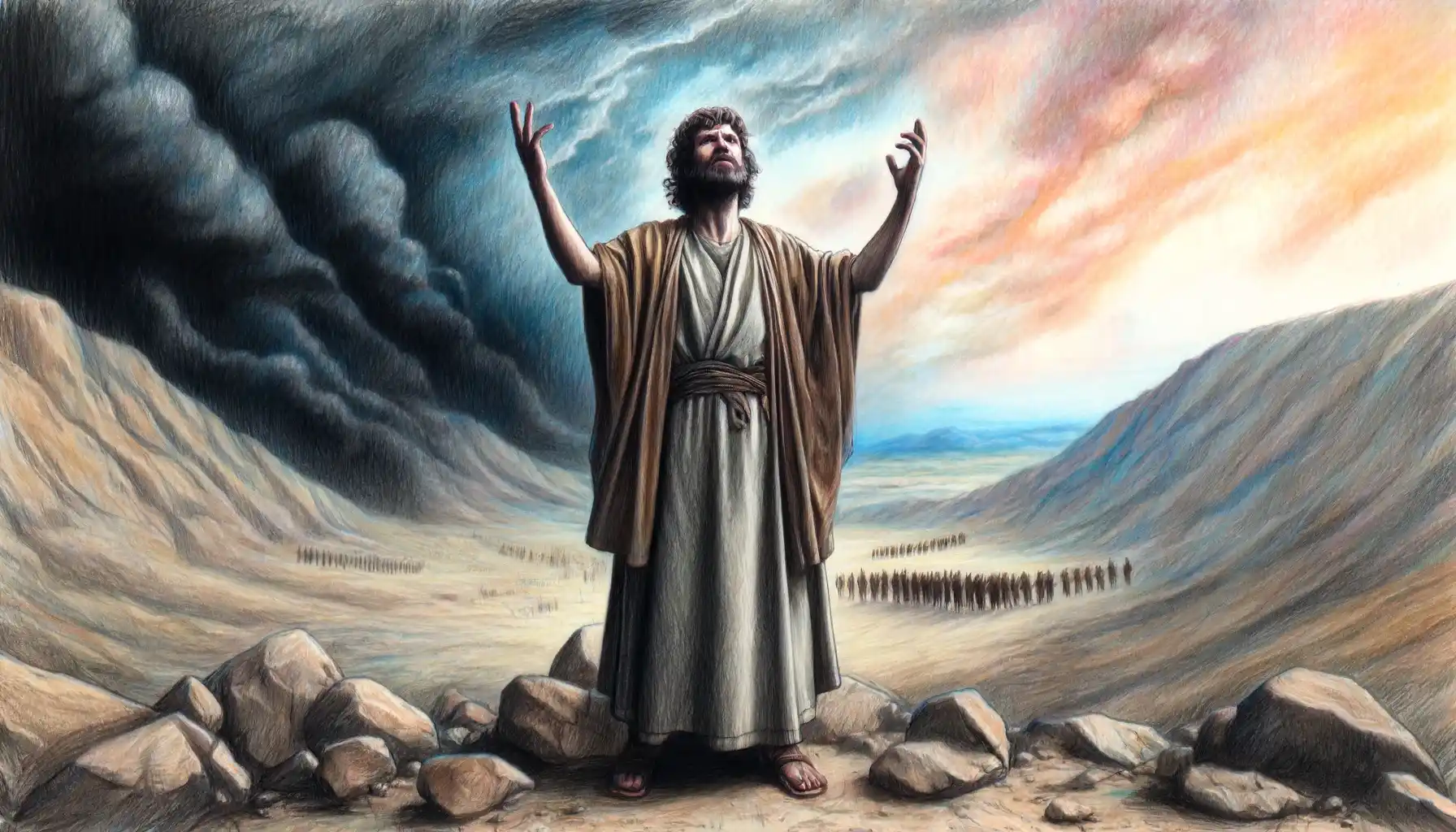
Habakkuk
Habakkuk, a prophet in the Hebrew Bible, is known for his candid dialogues with God, where he questioned the presence of evil and injustice in the world, ultimately leading to a profound affirmation of faith in God’s sovereignty and justice.
Quick Facts
- Historical Context: Habakkuk prophesied during a time of moral and political turmoil in Judah, likely around the late 7th century B.C.
- Questioning God: He is notable for openly questioning God about the prevalence of evil and suffering.
- God’s Response: God answered Habakkuk, revealing that He would use the Babylonians as an instrument of judgment.
- Faith and Trust: Despite not fully understanding God’s ways, Habakkuk expressed profound faith and trust in God’s ultimate justice.
- The Book of Habakkuk: His prophecies are recorded in the Book of Habakkuk, consisting of three chapters.
- The Just Shall Live by Faith: A key verse from Habakkuk, “the just shall live by his faith” (Habakkuk 2:4), is quoted in the New Testament.
Historical and Cultural Context
Habakkuk’s ministry likely took place during the late 7th century B.C., a period of great instability and corruption in Judah. The kingdom faced threats from emerging powers, particularly Babylon. This was a time when the moral and spiritual decline of Judah provoked questions about God’s justice and presence amid apparent evil and suffering.
Habakkuk’s Dialogue with God
Unlike other prophets who mainly delivered God’s messages to the people, Habakkuk’s book uniquely presents a dialogue between the prophet and God. The book begins with Habakkuk’s heartfelt complaints and questions about why God tolerates injustice and violence among His people (Habakkuk 1:2-4). Habakkuk’s boldness in questioning God demonstrates his deep concern for justice and his intimate relationship with God.
God’s Initial Response
God’s response to Habakkuk is surprising and challenging. He reveals that He is raising up the Babylonians, a ruthless and impetuous nation, to execute judgment on Judah (Habakkuk 1:5-11). This answer confounds Habakkuk even more, as he struggles to understand how a holy and just God can use a wicked nation to punish His people.
Second Complaint and Response
Habakkuk questions God again, grappling with the seeming contradiction of using a more wicked nation to judge a less wicked one (Habakkuk 1:12-2:1). In His second response, God assures Habakkuk that the Babylonians will also face judgment for their sins. God provides a vision and commands Habakkuk to write it down clearly so that it may be read and understood (Habakkuk 2:2-3). God emphasizes that “the righteous shall live by his faith” (Habakkuk 2:4), encouraging perseverance and trust in His divine plan.
Five Woes
God pronounces five woes against the Babylonians, denouncing their greed, violence, debauchery, and idolatry (Habakkuk 2:6-20). These pronouncements serve as a reminder that God’s justice will prevail, and the oppressors will not go unpunished. Each woe underscores a specific form of wrongdoing, highlighting the moral order that God upholds.
Habakkuk’s Prayer and Hymn of Faith
The book concludes with a prayer that reflects Habakkuk’s transformation from confusion to faith. In Habakkuk 3, he recalls God’s mighty acts in history and expresses awe at His power and justice. This chapter is structured as a psalm, emphasizing reverence and trust in God despite circumstances. Habakkuk’s declaration, “Though the fig tree should not blossom, nor fruit be on the vines… yet I will rejoice in the Lord; I will take joy in the God of my salvation” (Habakkuk 3:17-18), epitomizes his journey to unwavering faith.
Theological Themes
Habakkuk’s dialogue with God explores profound theological themes:
- Problem of Evil and Suffering: Habakkuk addresses the age-old question of why a just God allows evil to prosper and suffering to exist.
- Divine Sovereignty: The book emphasizes that God is in control of all nations and events, even when His ways are beyond human understanding.
- Faith and Righteousness: The declaration that “the righteous shall live by his faith” underscores the importance of faith in God’s promises and character.
- Justice and Judgment: The book reassures that God’s justice will ultimately prevail, and the wicked will face divine retribution.
Legacy and Impact
Habakkuk’s prophecies resonate through the ages, particularly his statement about living by faith, which is cited in the New Testament (Romans 1:17, Galatians 3:11, Hebrews 10:38). His honest questioning of God and subsequent journey to trust and faith provide a powerful model for believers facing doubt and uncertainty.
Conclusion
Habakkuk’s candid conversation with God about the problem of evil and his eventual affirmation of faith highlight key aspects of the human-divine relationship. His prophetic book remains a significant source of theological reflection on divine justice, faith, and the sovereignty of God.



